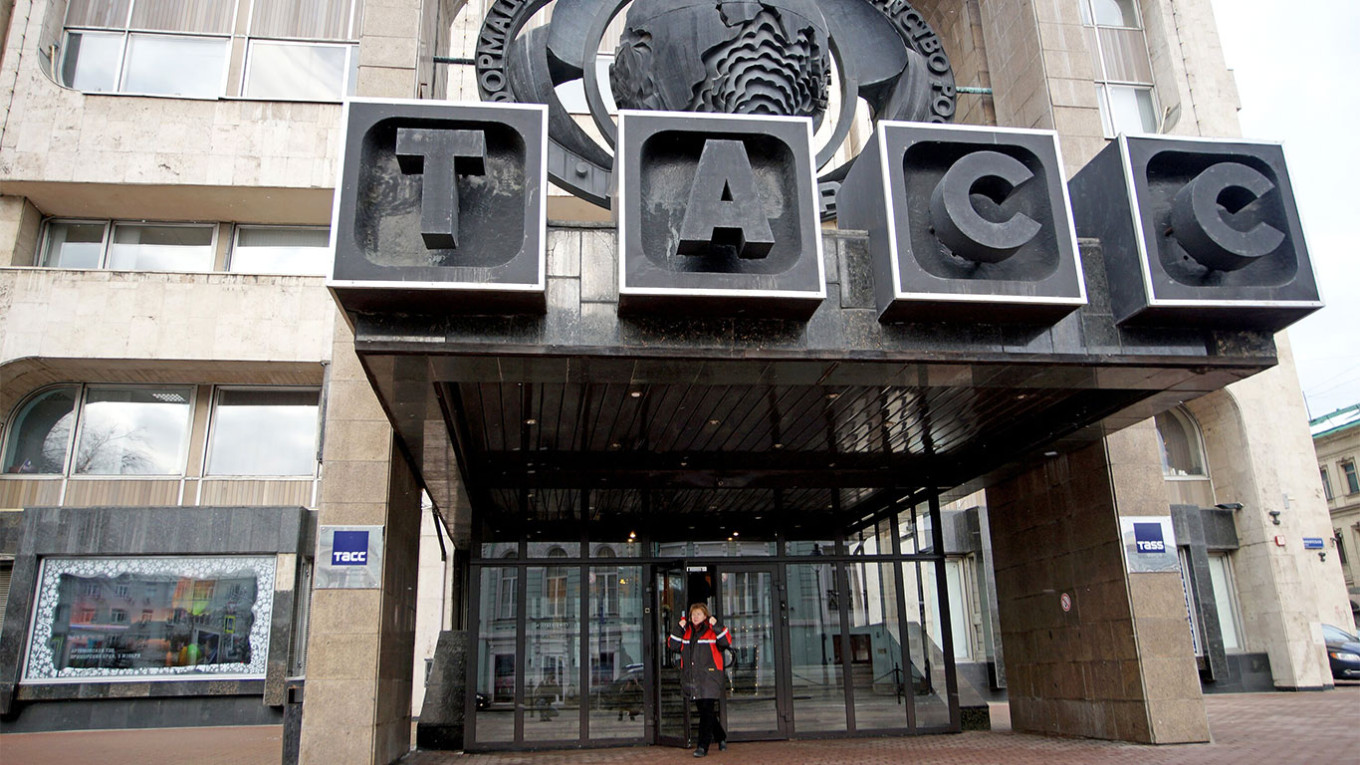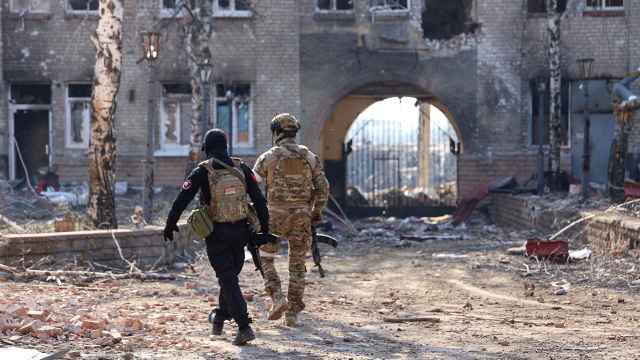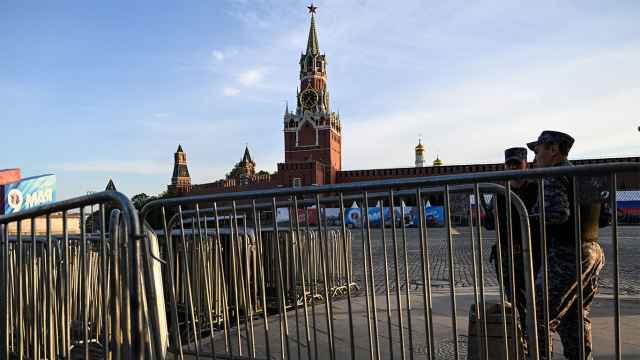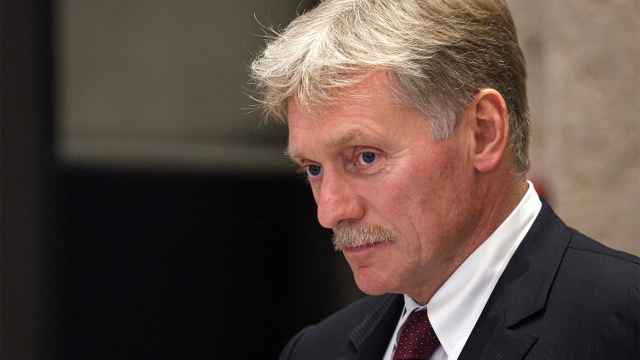When Deputy Prime Minister Dmitry Chernyshenko walked up to the state-run TASS news agency’s Soviet brutalist headquarters a few blocks from the Kremlin on July 5, no one suspected that he would announce the appointment of a new general director.
TASS’s general director Sergei Mikhailov, 52, who was honored with the presidential Order of Friendship in 2021, had resigned of his own volition, Chernyshenko announced, pointing to Mikhailov, who sat next to him with an anxious expression.
Andrei Kondrashov, the deputy general director of state-run VGTRK and former spokesman for Putin's 2018 election headquarters, was named as Mikhailov’s replacement.
The reshuffling at TASS, which came just days after the Wagner mercenary group’s aborted mutiny, was not widely covered by the media.
But for Mikhailov himself and TASS’s almost 2,000 employees it came as a shock, three people familiar with the former general director told The Moscow Times.
Mikhailov was in fact sacked as the Kremlin's punishment for TASS’s coverage of the Wagner mercenary group’s mutiny, which it believed cast Russian authorities in an unfavorable light.
His dismissal was confirmed to The Moscow Times by a high-ranking TASS manager, a presidential administration official, two senior sources in the State Duma, and a Russian government official.
All of them were granted anonymity due to the risk of repercussions for disclosing confidential information to the media.
A senior manager of a major Russian media holding was also aware of the situation.
Two acquaintances of Mikhailov’s claimed that the last straw was his departure from Moscow during the June 24 mutiny.
Mikhailov denied fleeing Moscow, telling The Moscow Times: "I was in my office during the mutiny and only left work in the morning.”
“I have had no complaints about my work at TASS for 11 years,” Mikhailov said via messaging app. He did not respond to a question about the reasons for his resignation.
“No, it's all wrong,” President Vladimir Putin's spokesman Dmitry Peskov told The Moscow Times when asked if Mikhailov was sacked.
He did not respond to a follow-up question about why Mikhailov resigned.
A spokesman for Prime Minister Mikhail Mishustin, to whom TASS is subordinate, ignored a request for comment.
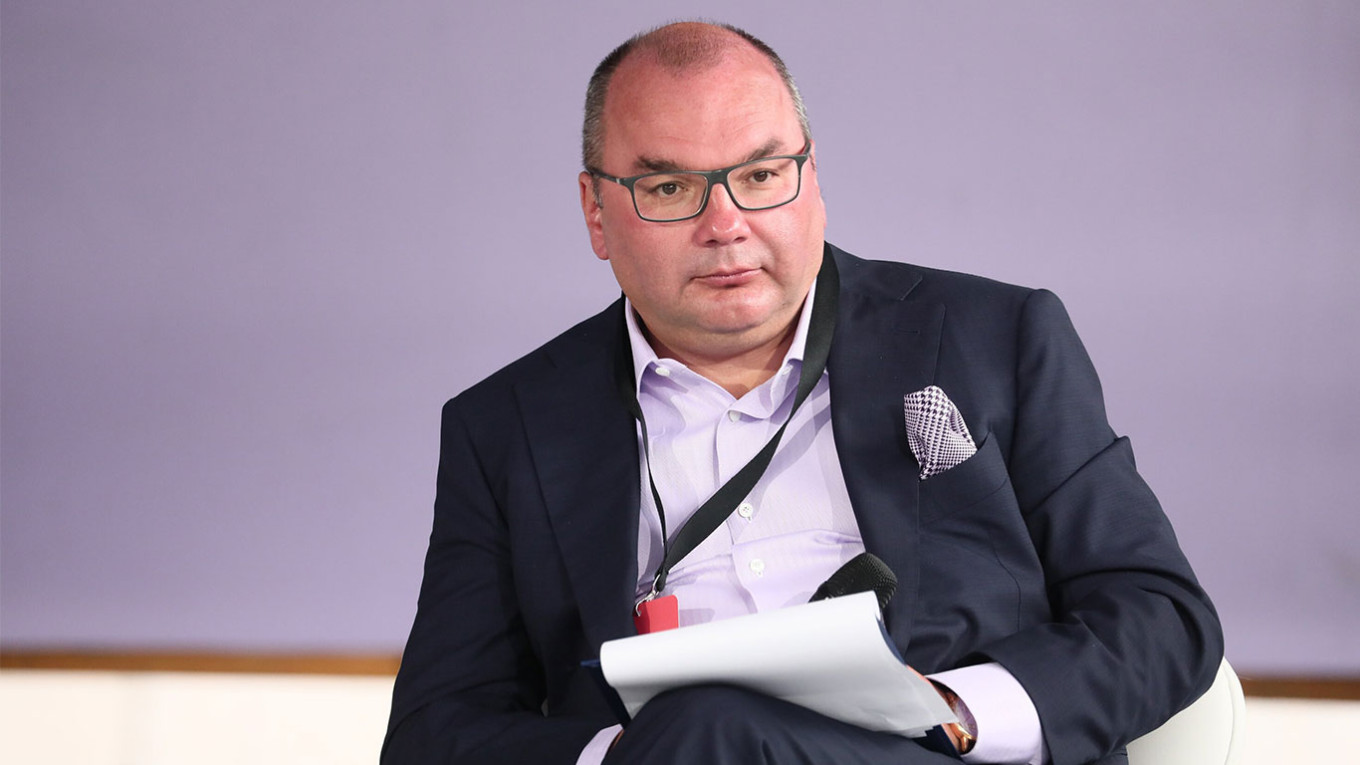
The TASS director’s dismissal, which took place 10 days after Wagner leader Yevgeny Prigozhin attempted to overthrow Russia’s military leadership, is the first known punishment of a senior civilian functionary in connection with the rebellion.
Several high-ranking military officials are known to have been fired since the mutiny, most notably Sergei Surovikin, the former head of Russia’s forces in Ukraine and former commander of the Russian Air Force.
A total of 15 high-ranking Russian military officers were detained, questioned and later suspended from service, The Wall Street Journal reported.
Mikhailov had “no intention” of stepping down at the time of his resignation, one of his old acquaintances said.
“He asked to be relieved of his duties earlier. Being on the sanctions list shook him up a lot. He’s a bon vivant, he likes to go out to European restaurants. But the Kremlin did not let him go. So he continued," the acquaintance said.
The fact that Mikhailov was planning to stay at TASS was confirmed to The Moscow Times by several agency employees who corresponded with him shortly before his resignation.
"We discussed with him our work tasks for late 2023," one of the employees told The Moscow Times.
The Kremlin saw Mikhailov as responsible for TASS's overly zealous, “newsworthy” and detailed coverage of armed Wagner mercenaries taking control of the Russian army’s command center in Rostov-on-Don while the Russian government stood by, panicking and publicly showing weakness.
In the early hours of June 24, TASS was one of the first to publish photos from Rostov-on-Don, clearly proving that Wagner fighters had taken the city center and blockaded the Southern Military District headquarters, a command center for the war in Ukraine.
“TASS covered all this in too much detail and promptly. Some kind of insanity has happened to them. They have forgotten that their main task is not to report the news. It’s to create an ideologically correct narrative for the Kremlin,” a Russian government official said.
The Kremlin, which keeps all state and private media under tight control, was unhappy with both the Prigozhin mutiny and what it saw as an insufficient level of pro-Kremlin coverage by TASS, a source in TASS’s management said. This was confirmed by a Kremlin source and an insider at a major Russian media holding.
Alexei Gromov, the first deputy head of the presidential administration who oversees Russian media, “was just furious,” the TASS source said.
“Mikhailov demanded that we observe the basic rules of journalism. We weren't as tabloidy as RIA Novosti [state news agency that is part of a media holding run by anchor Dmitry Kiselyov and RT head Margarita Simonyan],” the TASS official said.
The Kremlin and security officials were also displeased with the TASS manager’s behavior during the mutiny. Mikhailov was one of the functionaries, businessmen and officials who left the Russian capital, two longtime acquaintances of Mikhailov told The Moscow Times.
As Prigozhin’s men took over Rostov-on-Don and marched on Moscow, oligarchs and officials rushed out of the Russian capital on their private jets.
Allegedly among them were Putin’s childhood friend billionaire Arkady Rotenberg, Deputy Prime Minister Denis Manturov, billionaire Vladimir Potanin and the head of Inter RAO and the son of another childhood friend and billionaire Boris Kovalchuk, the investigative outlet IStories reported, citing data from the Flightradar tracker.
Independent Russian media reported that Putin had also left Moscow, but Peskov denied this, saying that "the president is working in the Kremlin."
A few days after the failed mutiny, State Duma deputies demanded that the security services investigate and make public a list of the officials and state functionaries who had left Russia during the crisis and punish them for their disreputable conduct.
Since then, no civilian official has been publicly punished for how they responded to the mutiny. Mikhailov appears to be the first.
"[Mikhailov] had left Moscow those days. But he received a call telling him to come back urgently. Then he told everyone that his departure from Moscow was a pre-planned trip. But who cared?" an old acquaintance of Mikhailov told The Moscow Times.
A second acquaintance confirmed this to The Moscow Times but said his departure from the capital was not connected to the mutiny.
"Sergei is indeed a fan of traveling. It was the weekend. He said it was just a coincidence," the acquaintance told TASS.
But this alleged departure, combined with TASS's coverage, cost Mikhailov his job nonetheless.
“The neutrality of TASS is of no use to anyone right now. It’s wartime and presidential elections are looming. The chief [Putin] must win on record,” the Russian government official said. “Under the new director general, TASS will be more aggressive and provocative.”
An earlier version of this article said that Mikhailov is 54. It has been corrected with his real age.
A Message from The Moscow Times:
Dear readers,
We are facing unprecedented challenges. Russia's Prosecutor General's Office has designated The Moscow Times as an "undesirable" organization, criminalizing our work and putting our staff at risk of prosecution. This follows our earlier unjust labeling as a "foreign agent."
These actions are direct attempts to silence independent journalism in Russia. The authorities claim our work "discredits the decisions of the Russian leadership." We see things differently: we strive to provide accurate, unbiased reporting on Russia.
We, the journalists of The Moscow Times, refuse to be silenced. But to continue our work, we need your help.
Your support, no matter how small, makes a world of difference. If you can, please support us monthly starting from just $2. It's quick to set up, and every contribution makes a significant impact.
By supporting The Moscow Times, you're defending open, independent journalism in the face of repression. Thank you for standing with us.
Remind me later.



